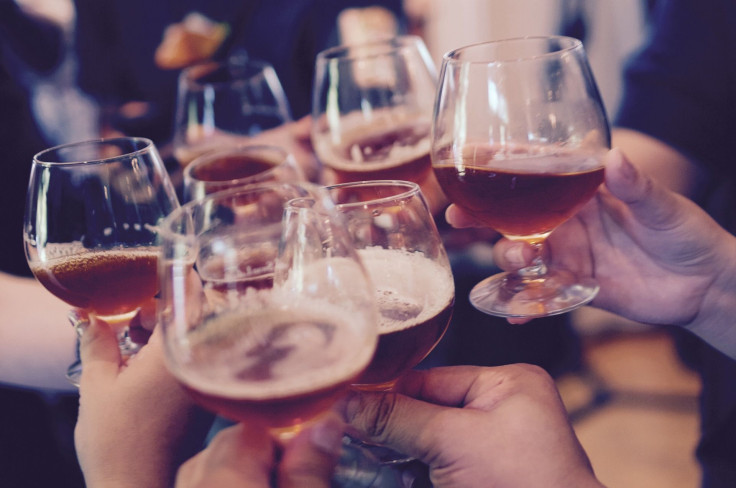Social Media Can Help Us Spot College Students With Potential For Drinking Problems

Maintaining a social media presence that depicts a lifestyle that revolves around drinking and partying may predict future drinking problems among college students, according to a new study. The results of the study are perhaps not too surprising, as researchers have begun using social media as a tool to study anything from depressive tendencies to narcissism and low self-esteem.
For the study, researchers wanted to see what motivated college students to drink and post about it publicly or privately on their social media accounts, and whether it was linked to potential alcoholism later on. “This work underscores the central role that social networking sites… play in helping students coordinate, advertise, and facilitate their drinking experiences,” said Lynsey Romo, assistant professor of communication at North Carolina State University and an author of the study, in a press release. “The study also indicates that students who are at risk of having drinking problems can be identified through [social media].”
There were some 364 undergraduate students from a Midwestern university who participated in the study. All of them were over the age of 18, had active Facebook, Twitter, or Instagram accounts, and had reported drinking at least one alcoholic beverage in the past month.
First, the participants were asked to report how often they used their respective social media sites, how much alcohol they consumed, whether they had any alcohol problems, and how frequently they posted about alcohol on their sites. They were also questioned about their motivations behind drinking.
The researchers found that students who had an "alcohol identity" were more likely to both drink alcohol as well as post about it on social media. “The strongest predictor of both drinking alcohol and posting about it on [social media] was espousing an alcohol identity, meaning that the individuals considered drinking a part of who they are,” said Charee Thompson, assistant professor of communication studies at Ohio University and an author of the study, in the press release. “And those two behaviors were associated with alcohol problems, such as missing school or work, or getting into fights because of drinking.”
But the most interesting finding was that posting on social media about booze was actually a stronger predictor of drinking problems than alcohol use; a social media account that detailed a student’s drinking escapades was more closely correlated to alcoholism than simply having a drink. This may be the case “because posting about alcohol use strengthens a student’s ties to a drinking culture, which encourages more drinking, which could lead to problems,” Thompson said.
According to the National Institutes of Health, four in five college students drink alcohol, half of whom take part in binge-drinking. And despite the fact that rampant binge drinking can be incredibly dangerous — killing nearly 2,000 students every year and contributing to over 97,000 instances of sexual abuse — interventions to curb alcohol use don’t do much good. A drinking culture is certainly ingrained in college life, but research has shown that binge drinking not only does harm to your body at the moment, it can also lead to serious health consequences later on, like high blood pressure.
As a result, the researchers hope their study can shed some light on how to learn more about nascent drinking problems among young populations, and target alcohol identities, cultures, and motivations. “We’re hopeful that these findings can aid policymakers in developing interventions to target the most at-risk populations — particularly students with strong alcohol identities,” said Romo. “Social media may help identify those students. For example, colleges could train student leaders and others in administrative positions to scan [social media] for text and photos that may indicate alcohol problems.”
Source: Thompson C, Romo L. College Students’ Drinking and Posting About Alcohol: Forwarding a Model of Motivations, Behaviors, and Consequences. Journal of Health Communication: International Perspectives, 2016.
Published by Medicaldaily.com



























